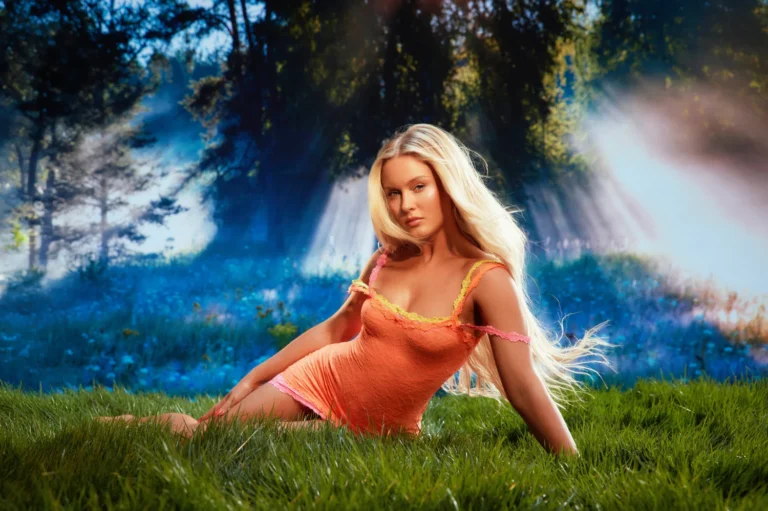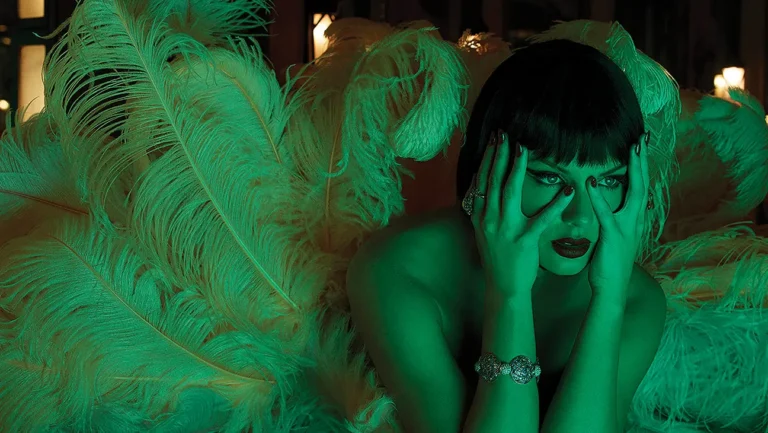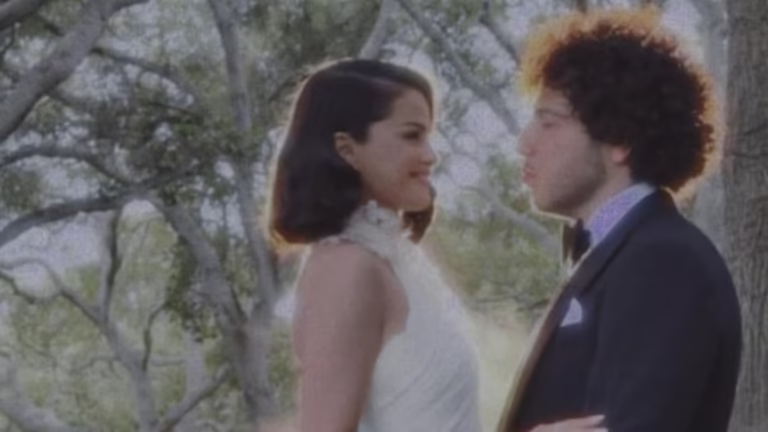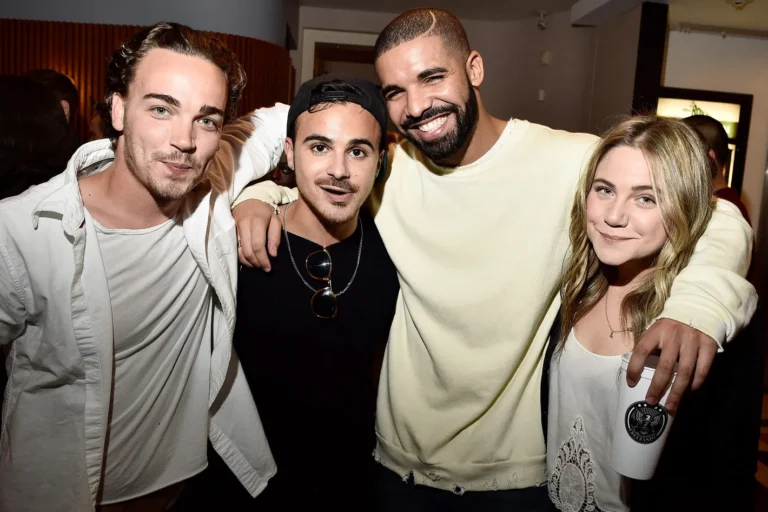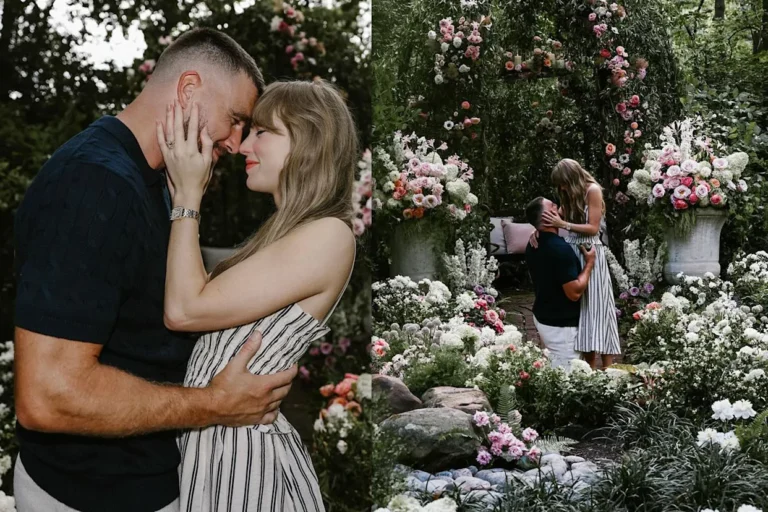Taylor Swift Shades Charli in New Album — Charli Fires Back?
Taylor Swift’s career has long included lyrical feints, subtle allusions, and public callbacks to past relationships and rivalries. When her 2025 album The Life of a Showgirl dropped with a centerpiece track called “Actually Romantic”, speculation erupted: did Taylor Swift shade Charli XCX? As fans and critics dissect lyrics and histories, Charli XCX’s recent studio posts have added fuel to the fire.
In this article, I trace the background between the two artists, unpack the evidence for Taylor Swift Shades Charli, examine Charli’s possible responses, and explore what this all might mean for their artistry and public image — without assuming either side is definitively in the right.
How ‘The Life of a Showgirl’ by Taylor Swift Is Redefining Pop in 2025
History Between Taylor Swift & Charli XCX: From Tours to Tension
Early connections and public admiration
Taylor Swift and Charli XCX share an intertwined history. In past years, Taylor publicly praised Charli’s songwriting and innovation, calling her writing “surreal and inventive.” Charli, in turn, expressed respect for Swift’s influence. (Charli has also stated that “Sympathy Is a Knife,” a track from her 2024 album Brat, was not aimed at Swift but addressed her own self-doubt and anxiety.)
They also crossed paths in touring contexts: Charli opened for Swift on the Reputation Stadium Tour in 2018. There were some public statements from Charli later reflecting that performing for Swift’s audience felt awkward at times — interpretations that sparked debates among fans. ELLE
Sympathy Is a Knife and early whispers
In 2024, Charli released Brat, which included the track Sympathy Is a Knife. Some listeners interpreted lyrics such as “Don’t wanna see her backstage at my boyfriend’s show / Fingers crossed behind my back, I hope they break up quick” as veiled references to Swift. However, Charli publicly denied that the song was aimed at Taylor, emphasizing that it was introspective, about insecurities, and not intended as a personal diss.
Nonetheless, rumors persisted. Fans speculated about behind-the-scenes tensions, competitive dynamics among female pop artists, and overlapping personal relationships (given that Taylor had briefly dated Matty Healy, from The 1975, whose bandmate is married to Charli). Rolling Stone
So when The Life of a Showgirl released and Actually Romantic surfaced, some saw it as Taylor’s response to prior insinuations — a new episode in the saga of Taylor Swift Shades Charli.
“Actually Romantic” and the Clues of Taylor Swift Shades Charli
Lyrical lines fueling the speculation
In Actually Romantic, Swift sings:
“I heard you call me ‘Boring Barbie’ when the coke’s got you brave / High-fived my ex and then you said you’re glad he ghosted me / Wrote me a song saying it makes you sick to see my face … It’s actually sweet / All the time you’ve spent on me.” People.com
These lines (especially the “Boring Barbie” reference, the past-relationship note, and having someone writing about her) match interpretations fans made about Charli’s Sympathy Is a Knife. In that older track, Charli’s lyrics hinted at complicated feelings around being overshadowed or insecure in the presence of another artist.
Critics and fans also note Actually Romantic occurs at track 7 on Showgirl, which mirrors Sympathy Is a Knife’s placement on Brat (also track 7), a numerical parallel that many believe is intentional.
In promotional material and a film tied to the album’s release, Swift described Actually Romantic as “a love letter to someone who hates you” and noted that being someone’s unreciprocated obsession is oddly flattering.
Together, those elements have led many to believe: Taylor Swift Shades Charli in Actually Romantic, albeit with a wink rather than a sledgehammer.
Absence of explicit naming and ambiguity as strategy
It is important to note that Taylor never mentions Charli by name in Actually Romantic, nor in any public statement tied to the album. That ambiguity allows multiple interpretations — the track could reference a multitude of past conflicts, personal critics, or emotional energies, rather than a single person.
Moreover, Taylor has many history-laden phases where she has responded to rumors, critics, or pairings in her lyrics — so The Life of a Showgirl context is consistent with that pattern. (Her public persona has long included weaving feuds, wordplay, and allusions.)
Because she doesn’t point a finger explicitly, Taylor Swift Shades Charli remains speculative, fueled by lyrical parallels and circumstantial echoes more than hard proof.
Charli’s Response: Subtle Moves, Studio Teases
Social media and studio posts
Shortly after The Life of a Showgirl released, Charli XCX posted a brief studio clip on social media — a few strings, two notes, a heart emoji caption — and confirmed she was in the studio. Many fans viewed this as a teaser, possibly signaling she is working on a response.
This kind of cryptic visual is common among artists engaging in lyrical dialogue: it doesn’t confirm anything, but it lets fans read into it. Some speculate Charli is working on a remix or countertrack; others think it could be unrelated, simply her ongoing creative work.
In interviews, Charli has downplayed any feud framing. She has emphasized that Sympathy Is a Knife addresses her insecurities and emotional inner life, not specific rivalries.
Artistic integrity, not drama
Charli has also spoken directly about staying true to herself and avoiding fan-driven narratives of rivalry. When rumors spread, she has criticized negative chants at her own shows (e.g., “Taylor Swift is dead” chants), and asked fans not to embrace hostility.
Meanwhile, by returning to the studio without explicitly naming names, Charli keeps the option open: she can respond creatively, but she also retains distance from public drama. Whether she “fires back” remains to be seen — and any response may be artistic, coded, or even collaborative.
Interpreting Taylor Swift Shades Charli: Motive, Meaning, and Caution
Is it a playful jab or a serious dig?
One key question is tone — is Taylor Swift Shades Charli meant in playful irony or as a serious plaint? Actually Romantic uses lyrical irony: lines like “It’s actually sweet / the time you spend on me” suggest a mixture of sarcastic distance and emotional jabs. That mode implies she is treating the tension less like a grudge and more like poetic observation.
Some critics interpret it as Taylor reclaiming narrative control — addressing past friction under the guise of “flattery” or “obsession.” Others see it as a misstep: when rivalry is turned into art, it treads a fine line between catharsis and provocation.
Because Swift’s lyrical style thrives on dual meanings, Taylor Swift Shades Charli may be part of her larger creative fabric: teasing, calling out, ambivalent stance. The uncertainty is often by design.
Risks and rewards of lyrical sparring
When a major artist appears to put shade on a contemporary peer, several dynamics emerge:
- Fan polarization: Some fans rally behind one side, others defend the target. In this case, Charli fans and Swift fans have heated debates.
- Narrative control: Taylor controlling a potentially fraught narrative via music allows her to pivot public interpretations.
- Artistic engagement: The drama drives attention to both artists, encouraging listeners to reexamine discographies and lyrics.
But those rewards come with risk: critics may view the song as petty, derivative, or lacking subtlety if the lyrical allusions feel too obvious. Some reviews of Actually Romantic already call it too blunt, lacking restraint. Pitchfork
Still, for many listeners, conflict gives music extra resonance: when the lines blur between life and art, songs feel more alive.
Broader Context: Pop Rivalries, Female Artists, and Shared Histories
The tradition of lyrical feuds in pop
Pop music has a long history of musical sparring: Taylor herself has participated in rivalries with Kanye, Katy Perry, Kanye, Nicki Minaj, and more. The Taylor Swift Shades Charli narrative is in that lineage — melodic jousting rather than open confrontation.
Often, these tensions yield memorable songs, layered meanings, Easter eggs, and extended dialogues across albums and media. The public often decodes, theorizes, and connects the dots, fueling cultural engagement.
Women in pop and difficult comparisons
When female artists operate in overlapping genres, audiences sometimes map comparisons, rivalry, or competition onto their careers, especially when their paths intersect (shared producers, shared audiences, social media dynamics). In many cases, those comparisons are more external than internal.
Charli has previously spoken about anxiety, self-doubt, and not wanting to be defined by rivalry narratives. Taylor Swift Shades Charli may reflect these external expectations more than internal animosity. The tension might be partially a function of fandom, media framing, and the pressures of proximity in pop space.
Opportunity for collaboration or reconciliation
Because both Swift and Charli are gifted songwriters with shared respect (Taylor praised Charli publicly in earlier years), there remains space for reconciliation or collaboration. The ambiguity around Actually Romantic and Charli’s social media silence leave room for either side to transform tension into art, dialogue, or even unity.
What’s Next: Potential Outcomes of the Taylor Swift Shades Charli Moment
A counter-song or remix from Charli
Given her recent studio posts and fan expectation, Charli may release a track that addresses Actually Romantic indirectly. That kind of response — subtle, coded, yet clear — is common in pop feuds. It allows her agency without escalating the conflict publicly.
A public statement or interview clarification
If tensions heighten, Charli or Taylor might speak more explicitly in interviews or media appearances to clarify intentions, tone, or context. That could defuse speculation or deepen interpretive nuance.
Artistic dialogue instead of confrontation
There’s a possibility both artists lean into this moment as part of a broader artistic dialogue: thematic responses across albums, guest features, or shared tracks that bridge past tension. That would transform a feud narrative into a creative collaboration or exchange.
Fans calling for unity
Many fans are already urging unity. Some social media threads speculate the possibility that Taylor Swift Shades Charli is intentional drama to spark conversation, and hope both sides might resolve it. Others are calling for a remix or public embrace rather than further shade. Glamour
Final Thoughts: Shade, Substance, and the Power of Music
The idea that Taylor Swift Shades Charli in Actually Romantic is tempting — the evidence of lyrical parallels, historical context, and fan speculation is hard to ignore. But because the clues are indirect, the interpretation remains open. Charli’s response, if any, could come in unexpected forms.
Rather than seeing this as a feud, one might view it as a moment of artistic vulnerability, where both women grapple with how to express conflict, insecurity, and attention in public art. And even in sharp lines, there is room for respect, nuance, and evolving dialogue.
At its best, this moment doesn’t end in division — it ends in artistry. It’s possible that Taylor Swift Shades Charli becomes one chapter in a longer story of mutual influence, evolving perspectives, and eventual collaboration or understanding. In the shifting landscapes of pop, that kind of openness is a hopeful note to end on.
Conclusion
The rumored tension between Taylor Swift and Charli XCX has undeniably captured the internet’s attention, but beyond the headlines and fan theories, this moment highlights something deeper about modern pop culture. Artists are no longer operating in isolation — every lyric, post, and visual choice sparks instant global analysis. Whether or not Taylor Swift Shades Charli was ever intentional, it has led to an engaging public conversation about artistry, competition, and creative influence.
Both artists have carved unique paths in the music world: Taylor continues to redefine storytelling and control over her narrative, while Charli pushes the boundaries of experimental pop and digital identity. Even in moments of perceived conflict, their artistic differences showcase the diversity and dynamism of pop in 2025.
As the noise fades and new releases take the spotlight, it’s worth appreciating that such debates — real or speculative — keep pop culture alive, passionate, and evolving. In the end, both Taylor Swift and Charli XCX are shaping the future of pop on their own terms, proving that artistry thrives best when it’s unapologetically authentic.
Stream, Sing, Repeat: U.S. Streaming Hits 2025 You Need to Know (Plus What’s Coming)


